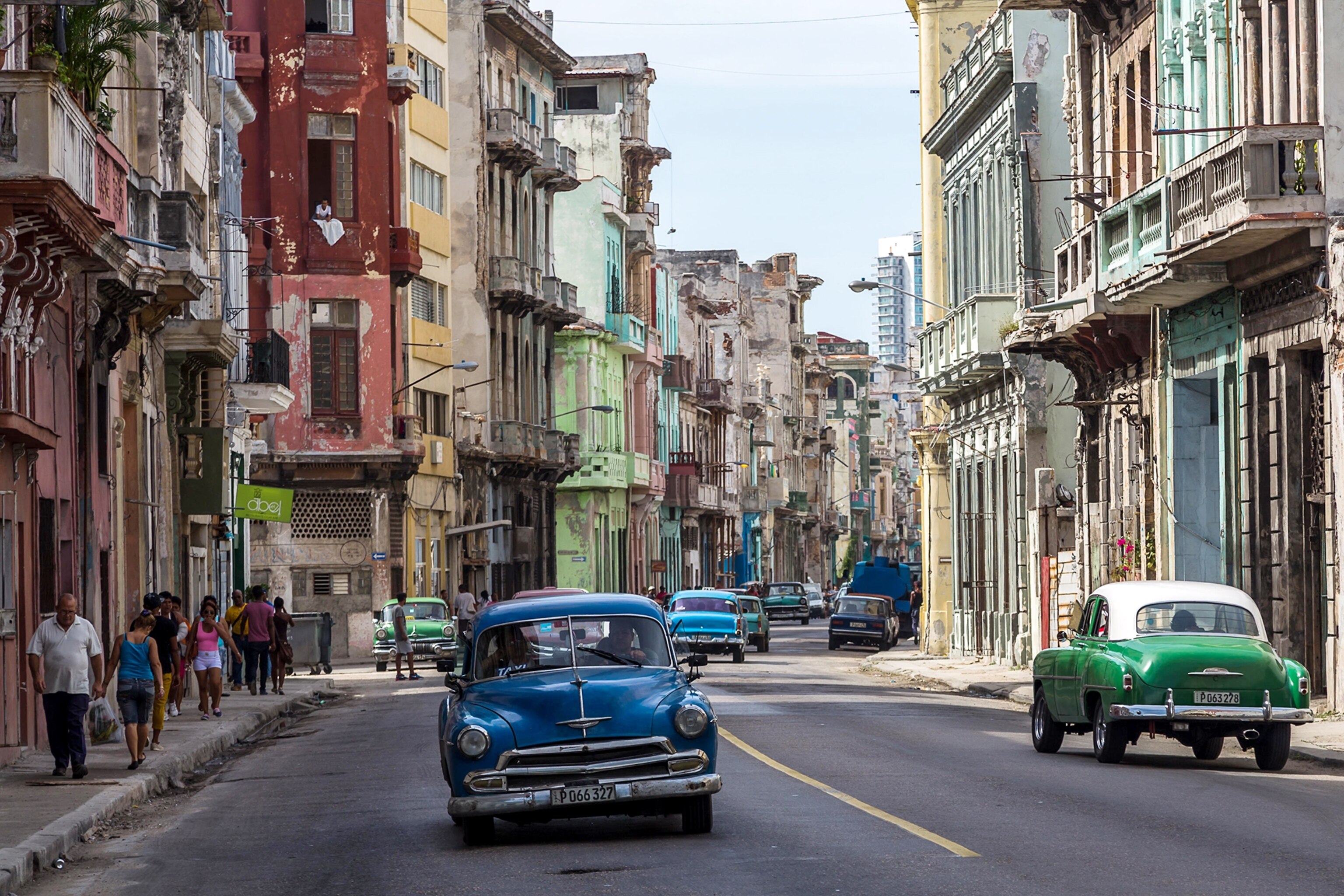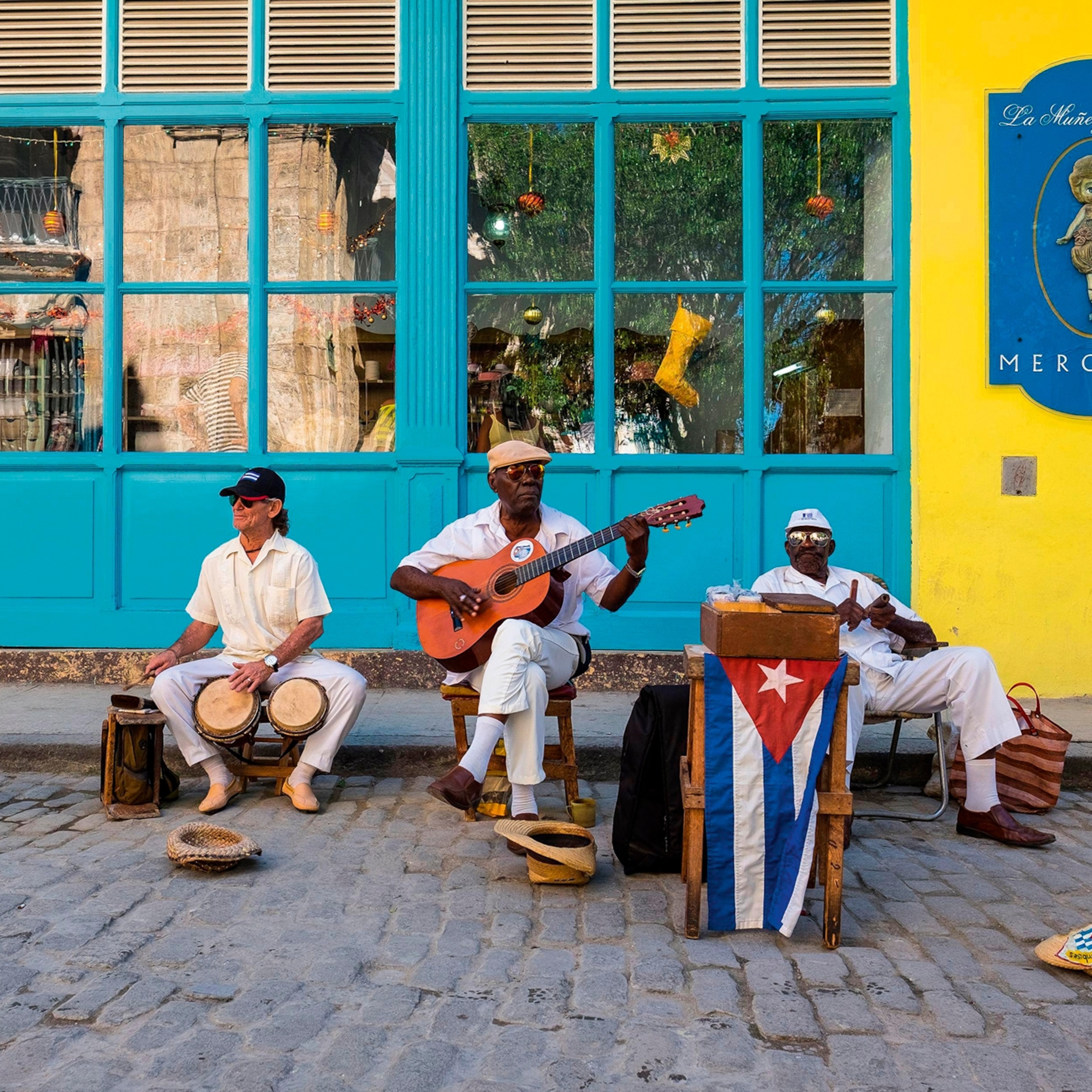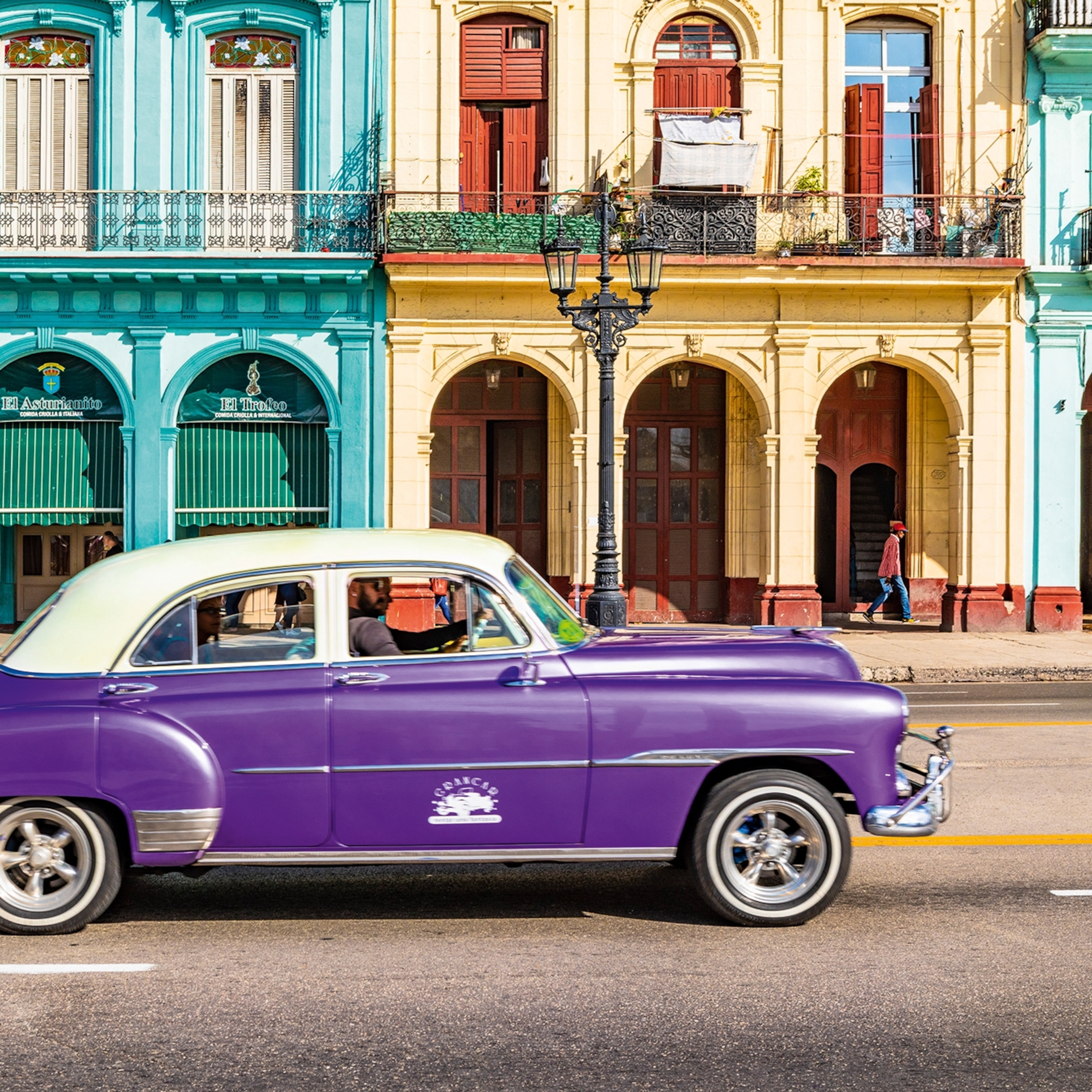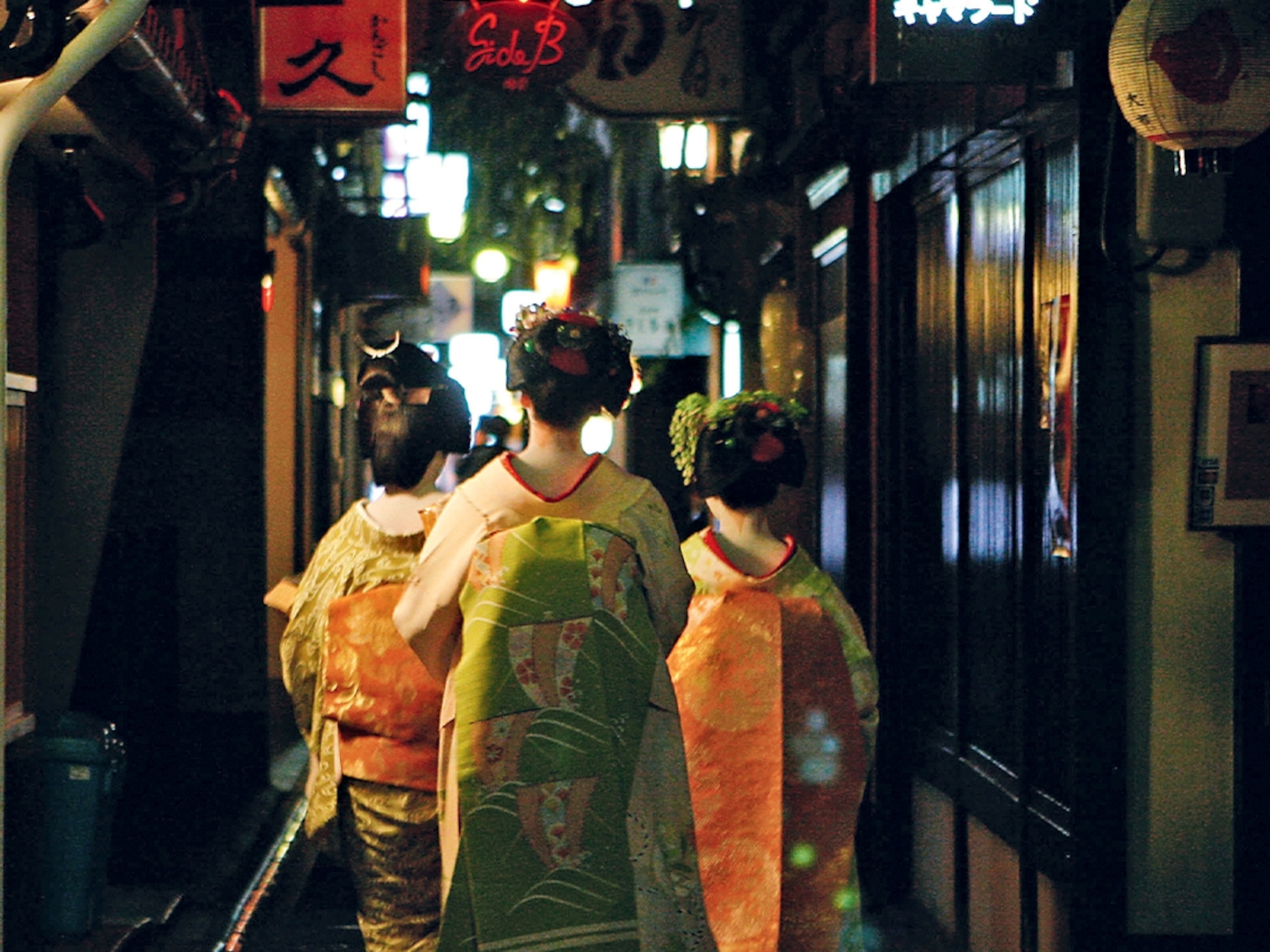
How Tourism Will Change Cuba
In 2015, a record number of people traveled to Cuba. Here's a look at how mass tourism is likely to change the famously sheltered island.
President Barack Obama, the Rolling Stones, and Major League Baseball: March 2016 was a busy month in Havana.
After more than a half century of chilly relations between the United States and Cuba, the Caribbean country has moved from an outlier travel destination to top of mind. More than three million people—a record—traveled to Cuba in 2015, with visits by U.S. residents growing by 77 percent.
How will this influx of outsiders change the famously sheltered island?
Infrastructure projects are in the works, though many lack outside financing, and international hotel groups are champing at the bit to get in the game.
But development backed by U.S. dollars hinges on two things: the Cuban government’s willingness to give the green light to American investors—provided the country is able to make its economy transparent enough for them—and the U.S. Congress gaining enough support from the public to lift the embargo in the first place.
Who knows when these things will happen.
In the meantime, though, increased tourism to the island—and the money it brings—is fueling the growth of entrepreneurism there, and that seems to be having a positive effect.
With demand outstripping supply, space has opened up for small privately owned businesses to act as catalysts for change in the world of restaurants, homestays, and B&Bs. Here's a look at how tourism is likely to bring about a revolution—albeit a slow and subtle one—in Cuba.
The Rise of Paladares
By international standards, Cuba is no foodie destination. But that's changing in Havana, the country's culinary heart.
Despite local chefs having little means, other than the Internet, of learning from their peers in other countries, new paladares (privately owned restaurants) keep popping up, offering a welcome alternative to government-controlled restaurants that depend on food rationing and allowances.
Tamar Lowell of Access Trips—which launched culinary tours on the island in 2015—has noted increased competition among restaurants and a surge in self-employed street food vendors over the past year, especially in Old Havana. “We are hearing that some of the top paladares are booking [up] weeks and even months in advance,” Lowell reports.
She's also seen firsthand how the rise of paladares has improved the quality of food for visitors (and locals who can afford it).
Lowell points to Finca Marta, one of the stops on her company's tours, as an illustration. Without paladares, there would be little demand for the organic produce Fernando Funes Monzote grows on his 20-acre farm just outside Havana. But as travel to Cuba explodes, chefs are encountering tourists whose expectations go beyond the staid pork and plantains fare that's given Cuba a reputation for uninspired cuisine.
As a result, Funes now supplies greens and vegetables to many of the top private restaurants in the city and is helping to lead the call for a homegrown resurrection of farming in Cuba. (The country continues to import up to 80 percent of its food due to a failed state-run agriculture model that President Raúl Castro has been working to address.)
An Airbnb Revolution
On the housing front, private homestays—many listed on Airbnb and Homestay.com—have proliferated to bridge the gap between Cuba's current hotel capacity and the number of rooms needed to meet ever increasing demand.
One case in point: Airbnb now has more than 4,000 listings in 40 different cities around Cuba—a threefold increase since it launched operations there in April 2015.
“Airbnb stays provide some of the most culturally diverse and immersive people-to-people experiences on the island,” says Jordi Torres Mallol, the company's regional director for Latin America. “We’re making it easier for local hosts to showcase Cuba’s unique hospitality by welcoming travelers from around the world into their homes,” he adds.
But that's not the only perk they're receiving. Mallol reports that hosts earn an average of $250 per booking, significant income in a country where the average salary is less than $30 a month. (Though it must be noted that the cost of living is also quite low due to government subsidies, lest this become a treatise on the superiority of laissez-faire capitalism.)
Infrastructure in Flux
As the end of the embargo looms, American investors are lining up to claim their piece of the tourism pie in Cuba.
- National Geographic Expeditions
For now at least, Starwood is the first U.S.-based hotel chain to get its foot in the door. In March 2016, the company inked an agreement to take over operations at three Havana hotels: Hotel Quinta Avenida, in the city’s posh Miramar district, will woo the business travel set, while Old Havana mainstays Hotel Inglaterra and Hotel Santa Isabel will be transformed into luxury boutique properties.
Havana has also given the green light to passenger cruise companies based in the U.S., including Carnival, which has spring departures planned, provided Cuba changes its policy barring nationals from returning by sea.
And, as is the case with Havana's airport and hotel infrastructure, the city's port stands to be swamped by projected visitors.
There are rumors of a new cruise ship terminal to be built in Havana’s historic harbor, but no definite plans have been confirmed. “Any major changes will take a while, because these are very complex situations,” says Molly Danner of National Geographic Expeditions, which has been leading trips to Cuba under a person-to-person license since Obama reinstituted legal travel to the island in 2011. “There are many constituencies that have to agree on what needs to happen.”
But while accessing Cuba by cruise ship presents one way of getting around the dearth of quality accommodations and dining options on shore, it means fewer American dollars will seep into the newly reinvigorated private sector economy.
The Future Predicted
While Americans traveling with groups benefit from long-standing “fixer” relationships between tour companies and local operators, the impending influx of independent travelers with higher expectations, combined with a lacking service sector resulting from decades of a planned economy, could lead to a dampening of enthusiasm among Americans once the initial boom has subsided.
A rueful shrug and “this is Cuba” is not going to cut it for long, especially if you're paying international prices. But given time and training, the island's hospitality and service infrastructure will build upon the warm and vibrant culture of its people, making Cuba a compelling destination for travelers everywhere.







